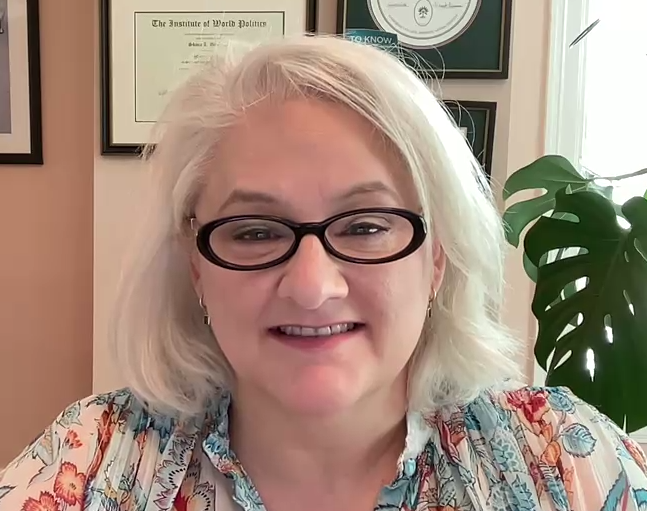
Podcast: Play in new window | Download () | Embed
Subscribe: Apple Podcasts | Spotify | Email | RSS | More
Shana Davidson shares her day-to-day Long Covid challenges using the “spoon theory,” a metaphor for the limited energy reserves people with chronic illness face
Summary
The episode explores the fascination with prolific enigmatic conditions, which are common yet complex and often misunderstood illnesses like fibromyalgia, chronic fatigue syndrome, lupus, endometriosis, and long covid. These conditions highlight systemic issues in healthcare, such as various biases and the complexities of corporate medicine and research. Shana Davidson, having personally experienced misdiagnosis and the challenges of navigating these conditions, emphasizes the intersectional barriers faced by women, people of color, and those with mental and spiritual health challenges.
Shana shares her journey with long covid, discussing the day-to-day management challenges using the “spoon theory,” a metaphor for the limited energy reserves people with chronic illness face. Shana’s experience underscores the difficulties in obtaining a diagnosis and appropriate care, reflecting broader issues in the medical system’s handling of chronic conditions.
Throughout, the podcast touches on themes of resilience, the need for advocacy, and the struggle for recognition and adequate research in treating long covid and similar conditions. The conversation also highlights the importance of compassion and understanding within the medical community and society towards those living with chronic illnesses.
Click here to view the printable newsletter with images. More readable than a transcript, which can also be found below.
Contents
Please comment and ask questions:
- at the comment section at the bottom of the show notes
- on LinkedIn
- via email
- YouTube channel
- DM on Instagram, Twitter, TikTok to @healthhats
Production Team
- Kayla Nelson: Web and Social Media Coach, Dissemination, Help Desk
- Leon van Leeuwen: article-grade transcript editing
- Oscar van Leeuwen: video editing
- Julia Higgins: Digit marketing therapy
- Steve Heatherington: Help Desk and podcast production counseling
- Joey van Leeuwen, Drummer, Composer, and Arranger, provided the music for the intro, outro, proem, and reflection, including Moe’s Blues for Proem and Reflection and Bill Evan’s Time Remembered for on-mic clips.
Podcast episodes on YouTube from Podcast.
Inspired by and Grateful to
Jeff Horner, Yaneer Bar Yam, Melissa Reynolds
Links and references
Episode
Proem

Ants: Prolific and enigmatic. Image by Open Art AI in style of Paul Barson
Prolific enigmatic conditions fascinate me. Prolific (many) is the opposite of rare (few), so not a rare condition. Enigmatic means mysterious riddle. Examples of enigmatic conditions include fibromyalgia, chronic fatigue syndrome, lupus, endometriosis, and long Covid. Enigmatic conditions put a spotlight on isms – racism, sexism, ageism, ablism, paternalism. They reveal a near-universal discomfort with uncertainty. And when you pull back the curtain to try to search or solve, you find the weight of corporate medicine, the research industrial complex, and vested-interest policy making. I know the frustration of years of misdiagnosis. I was misdiagnosed with cardiac disease when I had multiple sclerosis. My privilege insulates me from many cultural barriers and humiliation experienced by women, people of color, and those with mental and spiritual health challenges arising from the diagnostic and treatment journey of those with and caring for enigmatic conditions.
Since 2000, I’ve produced many episodes about Covid. You can find them here through this link or in the show notes: People and communities living safely in a pandemic, making choices for best spiritual, mental, and physical health.
Over the past few years, I’ve tracked the emergence and response to long Covid, been attracted to lived experience, and identified experts, resources, and advocacy. This episode features Shana Davidson, who is intrigued by the opportunity to tell her story and nervous about the energy it could consume. Shana doesn’t live her life out loud as I do. I’m grateful that Shana agreed to join us today.
Podcast intro
Welcome to Health Hats, the Podcast. I’m Danny van Leeuwen, a two-legged cisgender old white man of privilege who knows a little bit about a lot of healthcare and a lot about very little. We will listen and learn about what it takes to adjust to life’s realities in the awesome circus of healthcare. Let’s make some sense of all of this.
Learning health is fragile
Health Hats: Shauna, good that you could be here.
Shana Davidson: This is my first podcast ever.
Health Hats: It’s painless. We’ll have a good time.
Shana Davidson: Let’s see.
Health Hats: We’ll see. When did you first realize health was fragile?
Shana Davidson: My father is a surgeon. When I was about 14, he had a patient in her forties with melanoma, and the cancer had spread. I can’t remember what operation he did. But he started visiting her daily at the hospice. She was in her forties. She had two young kids, melanoma. Gone. She died. And that stuck with me. First of all, I live in fear of melanoma, but also that you can be very young and have something and die from something. So, that’s the first time it became evident to me.
Spoons, Spoonies
Health Hats: In several conversations we’ve had up to this point, you’ve been educating me, and I wanted to chew on more, which is this whole issue of spoons. I knew that people with fibromyalgia and chronic fatigue syndrome called themselves spoonies.
But I had yet to learn what it meant. And now that you’ve introduced me, I can’t stop thinking about it. Could you say more about it and what it means to you?
Pace Yourself versus Spoons

Image by Teodor Drobota on Unsplash
Shana Davidson: The place to start when you get this diagnosis, whether it’s long Covid or chronic fatigue or anything like that, or after you’ve had surgery, pace yourself. What does that mean, right? How do I do it? See how you feel as you go about your day. That doesn’t make any sense to me. I was fighting long Covid, so hard. I think I can push through it. I need to get my work done. I own my own business. There was much pressure.
Then, through various happenstances, the spoon started to click with me. It’s a system designed by chronic illness advocate Christine Miserandino, who has lupus. She was in a diner trying to describe to a friend what it felt like to live with chronic pain. And she was in a diner and could grab the closest thing around her: a fist full of spoons.
Budgeting spoons
Anyone with a disease like this starts the day with a certain number of spoons. For most people, it’s 12. For people who don’t have something like this, you have unlimited spoons, and you don’t get tired. Tired and fatigue are different. If you have 12 spoons, how am I going to spend them? At the beginning of the day, you have a constant bank account or spoon account with a budget. If I must do chores around the house, it’s two or four spoons. Driving somewhere can be two spoons.
Doing a conference call can be two spoons. I have some conference calls that feel like four spoons. When you run out, you’re just done. You can see how quickly taking a shower costs two spoons because of the surprising amount of physical exertion that goes into taking a shower. Then, I have difficulty regulating my body temperature. So, there’s a recovery period from taking a shower. I like to spend time in the garden, which sometimes is heavy physical work. Enjoyment can offset physical work. So, if it were a workout I haven’t done in three years, a proper workout would be four spoons. But because I enjoy it and casually pull some weeds here and do a little snip there, it costs me only two spoons.
The skill in it is that you can search the internet and say taking your pills costs one spoon. I am taking your kids’ costs to school costs x number of spoons. But the wisdom is to figure out the number of spoons for me. The spoon template might say driving will cost you x number of spoons. But I live about 70 miles outside of Washington in the Shenandoah Valley. Any drive I take is gorgeous. So that doesn’t cost me any spoons.
It gets tricky to figure out how many spoons you start the day with individually because there’s no way to know without experience and trial. Somebody may give you a budget. A friend of mine is not doing very well at all. And she says I have about five spoons at the beginning of the day. But some people will have 15 or 16. With all the apps, Apple watches, and things we have in our lives now, some apps are working on individualizing your budget at the beginning of the day. So that’s considerable help.
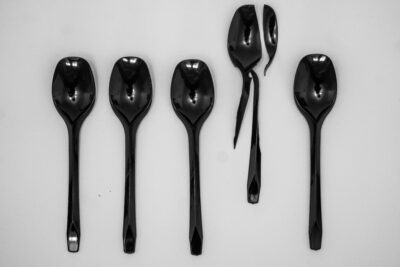
Image by Teslariu Mihai on Unsplash
Recovery mode variation in spoons
Health Hats: I know people in recovery mode from whatever. I tell them to do one degree less than they think they can. But spoons are different. Are there days when you have one more spoon? Or does it stay steady?
Shana Davidson: That’s the problem. I don’t have any external thing telling me how many because every day is different, right? As the saying goes, you have good and bad days. You might have more spoons on good days, but you don’t want to spend so many spoons that you end up the next day with fewer spoons. I would say that saying do 1% less or X percent or 5% means you must know what a hundred percent is like, and you don’t. The other thing I will say about counting spoons is that the woman who developed the system did it because she was trying to communicate with a friend. I want to say to someone that I’m canceling our plans. I don’t have any spoons. I’m canceling this meeting because I don’t have any spoons. I’m canceling this doctor’s appointment. I don’t have any spoons. That makes me feel a lot less guilty. A big part of long Covid is feeling guilty for not being part of your life and the life that you had with people in your life. So, communicating why you’re ghosting everybody, as the kids say, is excellent. But as you can tell, initiating someone into this language of spoons takes quite a while. So, you can’t do it with businesspeople. I can’t do it that way. You can’t explain to somebody who’s your client or your boss; this is why I’m not doing my work today. They’re not going to be cool with it.
Contracting Covid
Health Hats: Okay, so you got Covid. When was that?
Shana Davidson: I got Covid in September 2021 and then got in again in January of 2022. I got Covid a third time, and now I’m blanking on when it was. But the third time was the most challenging. Maybe I’ve blocked it out.
Health Hats: The most challenging time, meaning you had more symptoms.
Shana Davidson: I need to remember. I think I have blocked it out.
Health Hats: So, was there? Between these episodes, did you feel better?
Shana Davidson: No.
Health Hats: Okay. But we know that you had three episodes because you tested negative for a while, and then you tested positive again, and then negative, and then positive.
Opening up
Shana Davidson: Back then, you’re talking 2021, which is relatively late into the pandemic, but everybody’s still masking, right? We have the vaccine, and it was one of those periods where you’re, this is over now. And then the whole pandemic kind of went away, you know?
Health Hats: Yeah.
Shana Davidson: Yeah. You’ll remember that first summer we thought we could open. I didn’t keep testing myself throughout the process because it took a while for me to figure out that this was what I had. I had it in September of 2021. It could have been better. I got better.
I went to what amounts to a college reunion. And you stroll the campus, you do this, you do that. And one of the days, I was tired. I’m just going back. I need to sit. I started walking across the campus, where I’d walked thousands of times, and felt winded. I broke out in cold sweats.
I had to sit down. I finally reached my car and sat there for an hour doing nothing. That’s when I realized that this was something. And then it was, and I got it again at the end of the year. But I didn’t test in between those bouts.
Yikes, Long Covid?
Health Hats: When did long COVID enter your consciousness?
Shana Davidson: At college, I felt weird, but it wasn’t until that moment that I had cold sweats and a bad memory. It was intense.
Health Hats: Had you given yourself the label of Long Covid, and then you went to seek an official diagnosis?
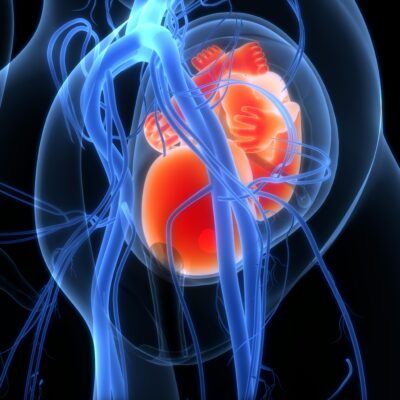
Image from Getty Images
Shana Davidson: I started reaching for an official diagnosis after that episode. I had the cardiac stress test. I had the pulmonary test, the transesophageal ECHO, and the ultrasound. And every doctor you see says there’s nothing wrong with you. Oh, you’re young. Go live your life. There’s nothing wrong with you. And you know your head is exploding because you’re like, no, there’s something wrong with me. And to this day, I’ve only had one doctor who has said I’ve treated patients with similar stories. I know what this is. I know how to handle your case. She’s a cardiologist. So almost everybody just tells you you’re crazy.
So, I pursued it aggressively. And then you get so many people not listening to you and so much media out there, right? Did it come from here? Did it come for that? What about this test? What about that study? And you pursue, oh, maybe this is what it is.
Tired of Pursuing Answers
I’m at the point where I’m tired of pursuing it. I don’t feel any better. Some non-Western medicine things that I’ve done, such as acupuncture and some herbs, have treated symptoms, not causes. But you get to a point where there’s a new study, there’s a new this, there’s a new that.
And you know what? I’m tired. I don’t want to pursue this anymore. Someone else will figure it out and let me know.
Health Hats: Okay.

From Getty Images
Shana Davidson: This is where I sit. I do my acupuncture, I take my herbs, and I use my spoons, and that’s just where things are right now.
Health Hats: Your find business is so insidious. The doctors mean, this is what I know about. They didn’t find anything they knew about that could help you.
Shana Davidson: Yeah.
Health Hats: But they’re not saying that.
Long Covid Center
Shana Davidson: I am in a program that, for lack of a better term, prescribes acupuncture right through George Washington University (GW). So, I have someone saying, no, you’re not crazy.
Health Hats: Okay, you’re in a program. What does that mean?
Shana Davidson: It isn’t a study, but a group of people with long Covid who happened to work at George Washington University. We’re curious, and we’re interested. They all had long Covid, but maybe they were interested in treating this and its symptoms.
We’re not going to figure out the cause anytime soon. We’re just not, and that’s what they do. I was lucky to get into that program. And depending on my symptoms, I talked to them. At first, it was regular, and now it’s sporadically or when something crops up, but I had something happen where I lost my sense of taste for six months. So, I contacted them and asked what this was about. And they didn’t know.
Asynchronous communication
Health Hats: Are there some asynchronous communication platforms you use?
Shana Davidson: Yes. They said you don’t have to come into our office initially. We’re going to do this over video. I don’t know what software they use; it doesn’t matter. But we won’t drag you into the doctor’s office, which is one of the hardest things you do with this. One of the hardest things I do is go to the doctor. A big part of it is figuring out, okay, how will I tell this story? How am I going to get them to listen to me? And so you’re like strategizing your doctor’s appointments, which is incredibly stressful and costs many spoons. I’m lucky that I got into that program.
Finally Diagnosed
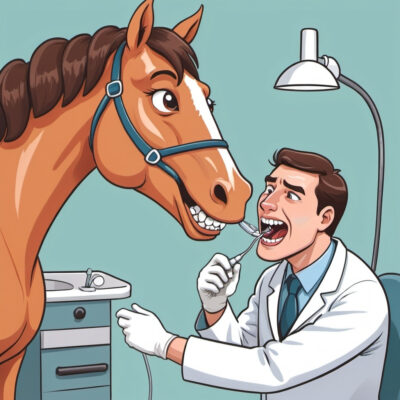
Dentist examining horse’s mouth cartoon in OpenArt AI
Health Hats: I had moved to Boston before I got the MS diagnosis. I got a different family practice doctor because we moved. I was very fortunate because I said something was wrong; she believed me, and she dogged it until we got a diagnosis. It took many months. I don’t know whether I was fortunate to have this family practice doc, I’m a guy, or what. I’m trying to figure out why. Don’t look the gift horse in the mouth. It was wonderful to finally have a diagnosis because there’s a menu of things to do.
Call to action
I need your help to expand my audience to younger people in advocacy. I’m doing more short-form videos. Please help by pointing me to communities of young advocates and the channels and hashtags they use so I can listen and learn. I now have one URL for all channels and media. https://linktr.ee/healthhats, where you can subscribe, access episodes, my website, and social media, and search the Health Hats archive. Your support is appreciated.
Rebel Health
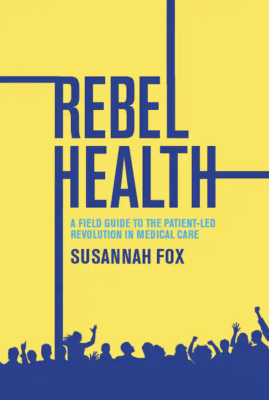
Rebel Health by Susannah Fox
One of the things that to me is interesting when a person has an exhausting chronic illness. Is that the point where? They have a spoon that they can afford to use for advocacy. Whether to use Susanna Fox’s words, she talks about seekers, networkers, fixers, solvers, and champions.
And having that people’s advocacy, like she has a book, Rebel Health, and that when people are rebels in healthcare or hacking healthcare, they take one or more of those approaches, and it seems like you’ve had, from time to time, a spoon to invest in advocacy.
You okay?
Social media help – 2-edged sword
Shana Davidson: I am wondering if I’ve invested well.
Health Hats: Go ahead, please.
Shana Davidson: I’ve written to some newsgroups or Facebook groups or posted things on Instagram. But the number of people who’ve told me to do a cleanse or some diet or you have some cockamamie thing that you’ve pulled out of the sky. Hey, if that works for you, rock on.
But the idea of going on even, some days, I eat what I find. I can’t be cooking a meal. I can’t be meal prepping. What can I reheat today? So, the idea of doing a cleanse or a special diet – no, I’m not. I don’t have spoons for that.
Useful help
Shana Davidson: And then it’s you’re crazy, lazy, and just don’t want to work. Here are all the ways I can help you, and it’s not useful help?
Health Hats: Yeah. I know. When I had a son who had melanoma and ended up passing, we realized early on that people wanted to help and that one of our roles as care partners was to make sure we had a list of things for them to do. People who loved us loved him, wanted to, or could do that would be helpful.
Because people don’t know, and you’re right, it’s primarily awkward.
Shana Davidson: people tell me I need to take a break.
Health Hats: Oh.
Shana Davidson: That still hasn’t been happening. It’s so that’s a spoon. I am dealing with, if not two.
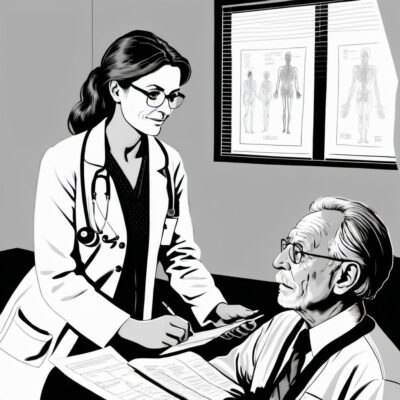
Image by OpenArt AI
Some compassion, please
Health Hats: What would you like to happen, and in what way? Think about the medical system and the community. What do you think? What would be helpful?
Shana Davidson: Some compassion generally; I think a big part of the hump here is that everybody wants to be over Covid. We want to put it behind us for excellent reasons. But for a lot of us, it’s still happening. And so when you say I have long Covid with some people, it triggers some people who are taken aback.
They say, oh, are you still infectious? Are you going? Or they say: that’s not the real thing. Those are the two options. 90% of my responses fall into either of those categories. And then there’s about 10% that’s compassionate, but they can’t help you. So, there’s a considerable effort to increase government funding for research. The amount of money they’re spending is tiny. I don’t have the figure on the tip of my head because of the brain fog, but it’s tiny.
What’s in a Name?
Shana Davidson: I would love it if we could find a name for this disease that didn’t have the word Covid in it. We would be taken much more seriously as patients. There also needs to be a dramatic shift in medicine for diseases that we can’t explain. It’s the same thing with people who have chronic fatigue and struggle with being told that they’re lazy or they don’t want to do whatever and are not taken seriously. And I don’t have any optimism about any of that. What can you do? Because it’s more about what I can do.
Chronic Disease Management – Diagnosis, Symptoms, Care, Treatment
Health Hats: Okay. Compassion. Yes. Take it seriously. Research our healthcare system isn’t set up for, I was going to say, for chronic illness, but I don’t mean that, maybe for diabetes, for heart disease.
Shana Davidson: I think it’s set up for things you can quantify. And you can understand that if you’re coming from a Western medical or scientific method perspective, we want to identify and treat the cause. Treat that instead of focusing on the symptoms. Frankly, that’s something you can bill for. I have reminders telling me to do things. This is a reminder throughout the day to eat lunch because otherwise, I don’t, which significantly helps. So that’s what that was.
Health Hats: That’s good. Before we wrap up, I’d like to ask what we should have discussed that we still need to discuss.
Investing in Long Covid

Exhausted charcoal in OpenArt AI
Shana Davidson: Those are some big topics. The spoons are the best way to go. Also, there are some apps in development. We are working on solving the problem of counting spoons. The most challenging part is figuring out how many spoons you start the day with. Some people trying to figure those out also have long-term Covid and comparable diseases. But that would be something tangible that would help many people significantly. Again, a significant amount of money needs to be invested in this. The number is 26 million people dealing with long-term Covid. Compared to other diseases that are much more acute, we won’t win that battle. So, I’m saying that in some, it feels very hopeless.
Health Hats: I’m very interested in the long-term Covid. I do episodes about it when I want to learn something because it’s an excellent way to learn. And I’ve learned that the way to do that is to start with people with lived experience. So, you’re the first.
So, thank you very much for taking the time. I appreciate it, and I wish you the best.
Reflection
Shana, thanks for your generosity. When I first learned about spoons, I thought it was a cool idea, helpful management and communication tool, a good metaphor. But it doesn’t apply to me. However, I just returned from a trip to Florida to spread Mighty Casey Quinlan’s ashes in the Atlantic. I almost didn’t go as I tried to manage my weight, my energy, my vision, nerve pain, new meds with side effects – the usual mishmash. But it was for Casey, her family, my peeps, and me. I went. I have had a blast. Now I’m exhausted. Perhaps budgeting these spoon energy units spans weeks for me with MS, not days as for those with chronic fatigue and long-term Covid.
I plan to produce more episodes about long Covid. I have two episodes ready to be produced about travel to Georgia’s Cloudland Canyon State Park, motoring around in an all-terrain wheelchair, and celebrating Casey Quinlan as we scattered her ashes in the Atlantic. I’m interviewing special guest Aaron Carroll, CEO of Academy Health, in late June. Be well.
Podcast Outro
I host, write, and produce Health Hats the Podcast with assistance from Kayla Nelson and Leon and Oscar van Leeuwen. Music from Joey van Leeuwen. I play Bari Sax on some episodes alone or with the Lechuga Fresca Latin Band. I’m grateful to you who have the critical roles as listeners, readers, and watchers. Subscribe and contribute. If you like it, share it. See you around the block.
Related episodes from Health Hats
Creative Commons Licensing
![]() This license enables reusers to distribute, remix, adapt, and build upon the material in any medium or format for noncommercial purposes only, and only so long as attribution is given to the creator. If you remix, adapt, or build upon the material, you must license the modified material under identical terms. CC BY-NC-SA includes the following elements:
This license enables reusers to distribute, remix, adapt, and build upon the material in any medium or format for noncommercial purposes only, and only so long as attribution is given to the creator. If you remix, adapt, or build upon the material, you must license the modified material under identical terms. CC BY-NC-SA includes the following elements:
BY: credit must be given to the creator. NC: Only noncommercial uses of the work are permitted.
SA: Adaptations must be shared under the same terms.
Please let me know. danny@health-hats.com. Material on this site created by others is theirs, and use follows their guidelines.
Disclaimer
The views and opinions presented in this podcast and publication are solely my responsibility and do not necessarily represent the views of the Patient-Centered Outcomes Research Institute® (PCORI®), its Board of Governors, or Methodology Committee. Danny van Leeuwen (Health Hats)
